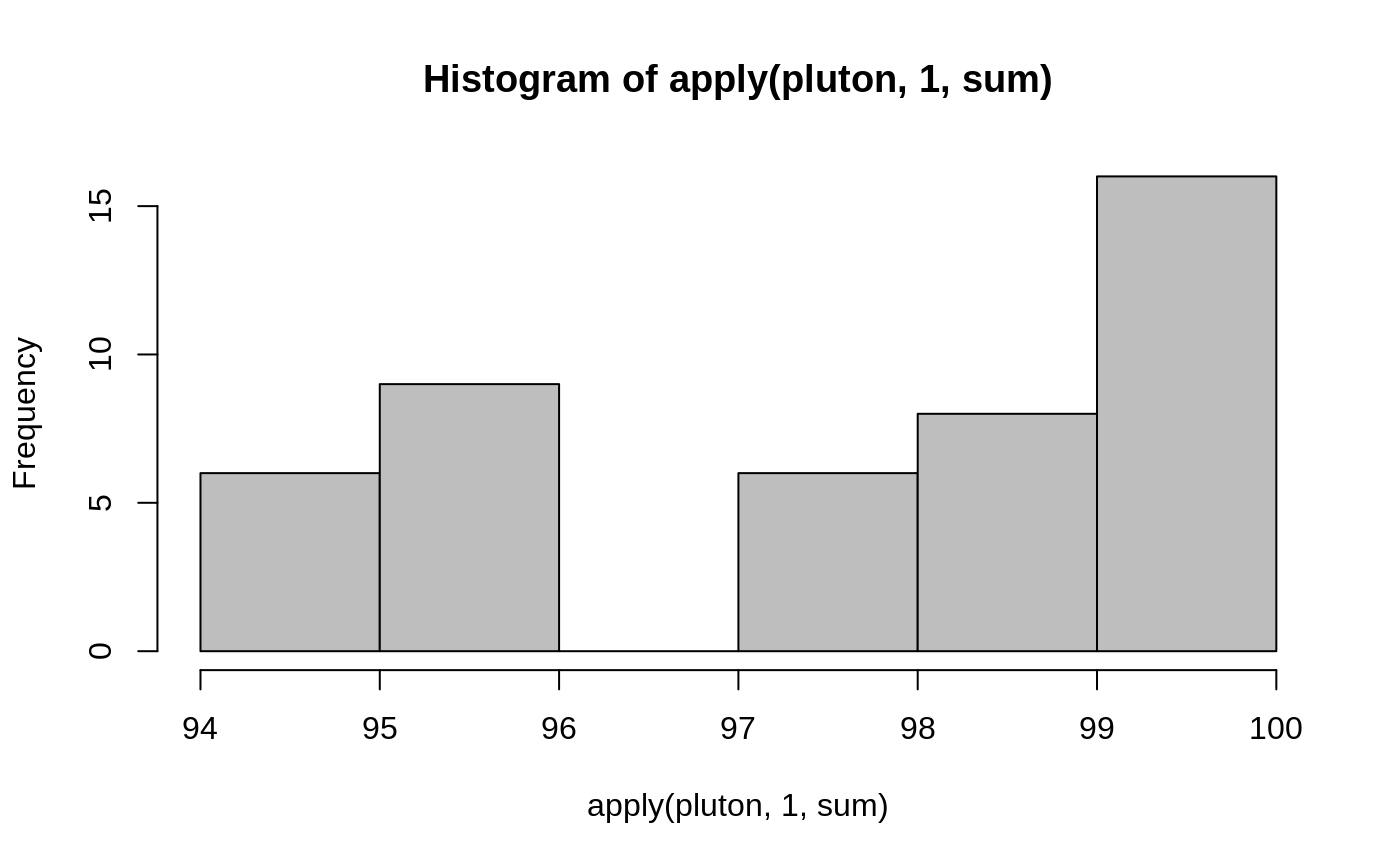Isotopic Composition Plutonium Batches
pluton.RdThe pluton data frame has 45 rows and 4 columns,
containing percentages of isotopic composition of 45 Plutonium
batches.
data(pluton)
Format
This data frame contains the following columns:
- Pu238
the percentages of \(\ ^{238}Pu\), always less than 2 percent.
- Pu239
the percentages of \(\ ^{239}Pu\), typically between 60 and 80 percent (from neutron capture of Uranium, \(\ ^{238}U\)).
- Pu240
percentage of the plutonium 240 isotope.
- Pu241
percentage of the plutonium 241 isotope.
Details
Note that the percentage of plutonium~242 can be computed from the other four percentages, see the examples.
In the reference below it is explained why it is very desirable to combine these plutonium patches in three groups of similar size.
Source
Available as pluton.dat from the archive of the University of Antwerpen,
..../datasets/clusplot-examples.tar.gz, no longer available.
References
Rousseeuw, P.J. and Kaufman, L and Trauwaert, E. (1996) Fuzzy clustering using scatter matrices, Computational Statistics and Data Analysis 23(1), 135--151.

